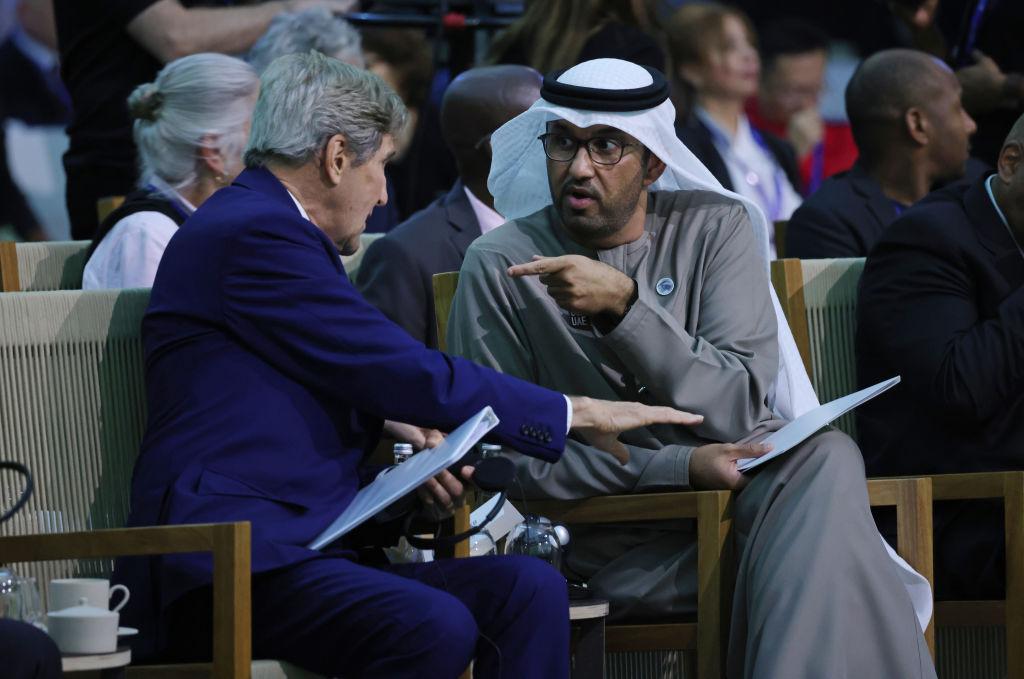The president of the U.N Climate Change Conference, also known as COP28, dismissed the idea that there’s “science” supporting the elimination of fossil fuel usage to meet climate change targets.
“There is no science out there or no scenario out there that says that the phase-out of fossil fuel is what’s going to achieve” the target of keeping global warming below 1.5 degrees Celsius, COP28 President Sultan Al Jaber said during a Nov. 28 online discussion held by activist group SHE Changes Climate.





